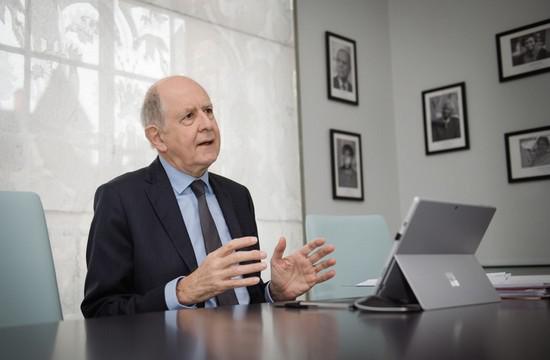|
Church cannot implement reforms alone
By Marie Malzac
Interview with the president of France's Independent Commission of Inquiry into Sex Abuse in the Catholic Church The president of the Independent Commission of Inquiry into Sex Abuse in the Catholic Church in France, Jean-Marc Sauvé, has said that the Church should accept aid in the battle against abuse, adding that the Church has taken a new step on "the path of a radical break" with abuse with the Rome summit on sex abuse from Feb. 21-24. In this interview, Sauvé discusses the implications of last week's Rome summit on sex abuse with La Croix's Marie Malzac. La Croix: What did you learn from the Rome summit that has just concluded? Jean-Marc Sauvé: I can see that there is a disparity between the expectations of the public on one hand and the outcomes of the meeting. However, I also believe that what happened in Rome indicates a new stage of awareness of the issue as well as a new and spectacular position on the sex abuse issue. Abuse is intolerable and must be firmly punished and eradicated. Going beyond Pope Francis' Letter to the People of God last August, the Catholic Church as a whole now appears to have launched on the path towards a radical break with a dark chapter of its history. However, in addition to the raised awareness of this evil and the need for zero tolerance, the Church also needs to follow through with a genuine overall reform. The Church's positioning needs to be absolutely clear. It cannot simply be said that the problem of sex abuse in the Church is similar to that in other institutions. That may well be true but it's not going to be accepted because everyone feels — and Christians more than anyone — that the Church recognizes or rather has received a special mission, which has absolutely no equivalent in our society. In fact, the pope said this again on Sunday. How can the Commission over which you preside contribute to the Church's work? The Commission's mandate is to investigate and record sex abuse cases in the Church since 1950, to examine how these cases have been dealt with or not, to offer a diagnosis of this situation and to make recommendations as concrete and operational as possible to put an end to this scourge. Our commission has 18 to 24 months to achieve the task. Initially, it was feared that this may not be enough time given the scale. In Germany and Australia, for example, simply establishing the facts took four to five years work. However, it is also urgent to act. So our deadlines will not allow for the indefinite postponement of the publication of findings and proposals. What can the Church do now given its loss of credibility? To overcome the generalized suspicion that now exists, sizable reforms will be necessary. To achieve this, the Church needs to act itself to attack the abuses of power and conscience, of which sexual abuse is one consequence, as Pope Francis clearly said last August. However, it cannot carry out these indispensable reforms alone and it will need to accept assistance from persons of good will, believers or not. Here in some parts of France, it is a good sign the Church has engaged independent external bodies and seeks to reform itself on their reflections, their expertise. It will be necessary to combine various processes as well as knowledge and experience from both the ecclesiastical and civil worlds to get on top of the current crisis. This is because sex abuse is a serious evil, a sin, from the Christian point of view, but also a crime at the level of human justice. It will therefore be necessary for preventive measures, e.g. in recruitment and formation of priests and religious, as well as sanctions to be put in place at every level of the Church that will be complete, credible and relevant in both spheres, namely the Church and the world. It will be necessary to restore confidence and to be able to respond in an overall manner to a generalized problem and thus also avoid the trap of clericalism.
|
.
Any original material on these pages is copyright © BishopAccountability.org 2004. Reproduce freely with attribution.
